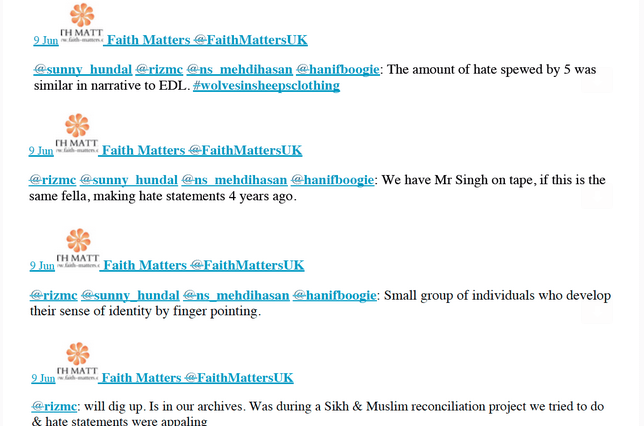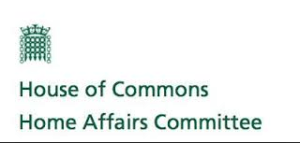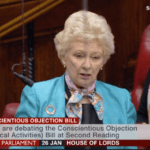Back in 2008 Faith Matters, the organisation behind Tell MAMA (the Muslim hate crime monitor) organised a ‘cohesive communities’ project for British Sikhs and Muslims to address, ‘the growing gulf between Sikhs and Muslims in certain localised areas of England’. It was held in Corrymeela (Ballycastle) between 4th-6th July 2008, a centre famous for conflict resolution at the height of sectarian troubles in Northern Ireland. According to FOI disclosures seen by the NSO the project cost the taxpayer £33,600.
Following the residential course four (out of nine) of the Sikh participants felt disgruntled enough to publish what they called an ‘Alternative Report’, (dated 1 October 2008) to express their concerns. They wrote: ‘In the view of many Sikh participants, the whole exercise proved faulty and dysfunctional; and failed to enable a wholesome and engaged dialogue on the critical Sikh-Muslims issues.’
In the same year the founder of Faith Matters, Mr Fiyaz Mughal, talked about the project in an article published by Faith Matters titled: ‘Cohesive Communities: Bridging Divides Between Muslim and Sikh Communities.’ He writes: ‘As the name suggests, the Cohesive Communities project was a chance for key issues to be aired and a start to the interaction process between both faiths. It was not meant as a basis to provide legitimisation for either community to use the report or its findings against the other and we firmly adhere to this principal.’
Despite the assurances given above, in June 2012, the following tweets (which were later removed following a complaint) making derogatory references to Sikh participants in Corrymeela were published by @FaithMattersUK.

We understand Faith Matters/Tell MAMA has recently organised a ‘round-table’ to discuss hate crime with Sikhs. This is in fact an area in which Sikhs led by the NSO have made significant progress, firstly by unearthing a breakdown of data from the MET police (through FOI) that shows significant numbers of non-Muslims, or those of no recorded faith (in 2015 and 2016) are being recorded under the ‘Islamophobic hate crime category’. In addition, we have a firm commitment from policy makers on a specific project for Hindus and Sikhs with True Vision – the police hate-crime reporting portal, which we hope to progress with our partners in the Hindu community this year.
We believe the 2012 tweets made by @FaithMattersUK, particularly the comparing of Sikhs who entered interfaith dialogue in good faith with Faith Matters to the EDL, and the accompanying hashtag #wolvesinsheepsclothing, are simply not compatible with the aim in creating harmonious relations between British Sikhs and Muslims, or promoting the concept of ‘cohesive communities.’
In the circumstances, it is our advice that Sikh groups should be wary of any partnerships, given what we view to be a previous betrayal.
Network of Sikh Organisations


 The issue of extremism and indoctrination in schools was debated in the House of Lords this week following a question tabled by Lord Storey who asked the government, ‘what steps they are taking to ensure that children and young people are not being indoctrinated in schools.’
The issue of extremism and indoctrination in schools was debated in the House of Lords this week following a question tabled by Lord Storey who asked the government, ‘what steps they are taking to ensure that children and young people are not being indoctrinated in schools.’ The Home Affairs Committee inquiry into hate crime and its violent consequences have published our second piece of written evidence which can be viewed
The Home Affairs Committee inquiry into hate crime and its violent consequences have published our second piece of written evidence which can be viewed 